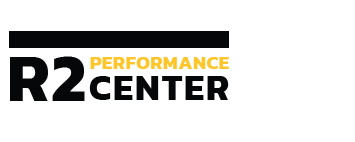

Enhance Performance with Mental Skills Training
Do you ever struggle with being unmotivated to train, lack confidence, or deal with fear of failure? Do you get so nervous you freeze up or underperform, have trouble bouncing back from mistakes, or frequently lose concentration while under pressure?
Performance enhancement or mental skills training can help you understand and leverage the connection between your mind and body to improve or maintain motivation, confidence, energy, and focus. You can enhance the quality of your physical, technical, and tactical training by being deliberate and intentional with the mental side of performance. If the quality of your training goes up, so does the quality of your performance.
To get started building mental skills, do three things: Notice, Reflect, and Build a Plan.
1. Notice
- Before, during, and after you practice or engage in a training event, ask yourself, “What is my current level of _____?” and insert the relevant topic.
“What is my current level of motivation?”
- Bring attention to your motivation, confidence, energy, and focus, thoughts, emotions, and physiological responses as you train and perform.
“During my workout in preparation for the Army Combat Fitness Test (ACFT), I felt physically sluggish and unmotivated. I didn’t really want to do the workout. I was tired and worn-out after work. During the workout, I was ‘over it’ and just going through the motions.”
2. Reflect
- After every practice or performance, reflect on what worked and what didn’t. Instead of focusing solely on physical, technical, or tactical elements, ensure you also focus on mental components.
- Reflect on whether your thoughts, emotions, and physiological reactions helped you perform well.
“My mindset really affected the quality of my workout. While doing something is better than doing nothing, I didn’t meet my weight or repetition goals and felt depressed afterwards.”
3. Build a Plan
- Keep doing what worked and create a plan to change what didn’t.
“The next time I feel tired and unmotivated, I’ll remind myself about why I’m working out and will be better prepared with music or headphones to get amped up. If I’m not ready to do the workout, I can change the weight or repetitions to match what my body is capable of so that I still feel like I accomplished something.”
Start paying attention to your thoughts, emotions, and physiological responses, and how they’re affecting your performance. Make adjustments based on what’s working and what isn’t.
Reach out to your nearest Ready and Resilient (R2) Performance Center if you need help to address specific mental and emotional challenges as it relates to performing. Performance Experts (PEs) provide mental skills training to help you be at your best when it matters the most.
Resources
Watch VideoDownload Infographic
MORE SKILLS
